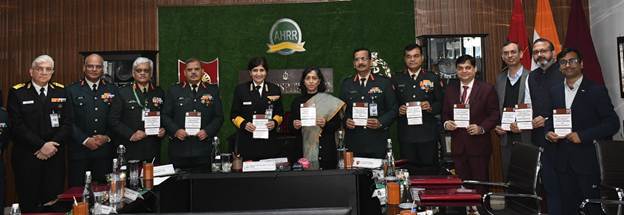
New Delhi: The Union Government today approved the launch of the National Mission on Natural Farming (NMNF), a standalone Centrally Sponsored Scheme under the Ministry of Agriculture & Farmers’ Welfare, to promote natural farming in mission mode across the country.
The scheme has a total outlay of Rs.2481 crore (Government of India share – Rs.1584 crore; State share – Rs.897 crore) till the 15th Finance Commission (2025-26).
Rooted in the traditional knowledge inherited from their forefathers, farmers will practise Natural Farming (NF) as chemical-free farming that involves local livestock integrated natural farming methods, diversified crop systems, etc. NF follows local agro-ecological principles rooted in local knowledge and location-specific technologies and is evolved as per the local agro-ecology.
NMNF aims to promote NF practices to provide safe and nutritious food for all. The Mission, a Cabinet note stated, is designed to support farmers to reduce the input cost of cultivation and dependency on externally purchased inputs. Natural farming will build and maintain healthy soil ecosystems, promote biodiversity and encourage diverse cropping systems to enhance resilience as suitable to the local agroecology are the benefits of natural farming.
NMNF is launched as a shift to scientifically revive and strengthen agriculture practices towards sustainability, climate resilience and healthy food for farmer families and consumers. In the next two years, it will be implemented in 15,000 clusters in Gram Panchayats, which are willing, and reach 1 crore farmers and initiate Natural Farming (NF) in a 7.5 lakh Ha area.
Preference will be given to areas having a prevalence of practising NF farmers, State Rural Livelihood Missions, Primary Agricultural Credit Societies, and Farmers Producer Organisations.
Further, need-based 10,000 Bio-input Resource Centres (BRCs) will be set up to provide easy availability and accessibility to ready-to-use NF inputs for farmers.
Under NMNF, around 2000 NF Model Demonstration Farms shall be established at Krishi Vigyan Kendras (KVKs), Agricultural Universities (AUs) and farmers’ fields, and shall be supported by experienced and trained Farmer Master Trainers.
The willing farmers will be trained in Model Demonstration Farms on the NF package of practices, preparation of NF inputs, etc. near their villages in Krishi Vigyan Kendras, Agriculture Universities and practising NF farmers’ fields. 18.75 lakh trained willing farmers will prepare inputs like Jeevamrit, Beejamrit, etc. by using their livestock or procuring from Block Resource Centres.
30,000 Krishi Sakhis/ Community Resource Persons will be deployed for awareness generation, mobilisation and handholding of willing farmers in the clusters.
“Natural Farming practices will help farmers reduce the input cost of cultivation and dependency on externally purchased inputs while rejuvenating soil health, fertility and quality and building resilience to climate risks like waterlogging, flood, drought, etc. These practices also reduce health risks from exposure to fertilisers, pesticides, etc. and provide healthy and nutritious food for the farmers’ family,” the Cabinet note stated. It added that through improvement of soil carbon content & water use efficiency, there is an increase in soil microorganisms and biodiversity in NF.
Farmers will be provided with an easy simple certification system and dedicated common branding to provide access to market their natural farming produce. Real-time geo-tagged and referenced monitoring of NMNF implementation shall be done through an online portal.
“Convergence with existing schemes and support structures of the Government of India, state governments, national and international organisations shall be explored for enhancing local livestock population, development of NF Model Demonstration Farms at Central Cattle Breeding Farms and Regional Fodder Stations,” the Cabinet note said. It added that efforts will be made to provide market linkages at district, block, and gram panchayat levels through convergence for local farmers’ markets, APMC (Agricultural Produce Market Committee) mandis, haats, and depots. Additionally, students will be engaged in NMNF through the Rural Agricultural Work Experience (RAWE) programme and dedicated Undergraduate, Postgraduate and Diploma courses on NF.
– global bihari bureau





